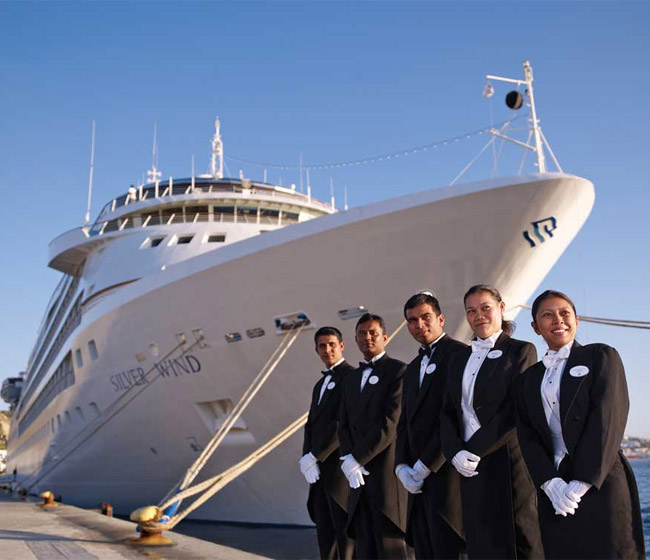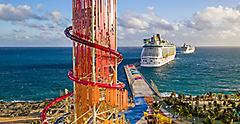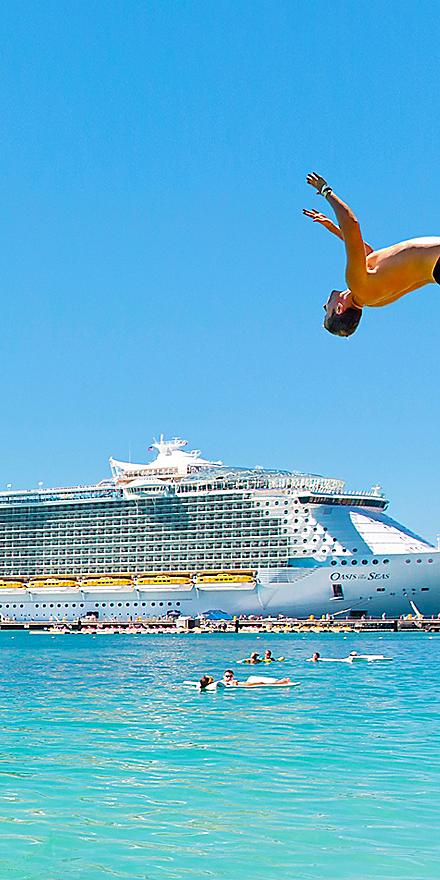
The job of security officer on cruise ships involves protecting passengers and the ship from all possible threats. Although security is good, the environment can still pose risks. Unattended children is a common problem. However, there are also security screening processes that help to keep staff and passengers safe. Additionally, security personnel must be alert for potential dangers outside of the ship.
Qualifications
The requirements for security personnel on cruise ships will vary from company to company. However, the majority of applicants must have previous experience in law enforcement and hotel security. The applicant must also hold a valid security license from their home country. Additional training is sometimes required by companies such as Standards of Training certification and Watchkeeping for Seafarers(STCW) certification. An associate degree in security management is required or a postsecondary certificate in surveillance and security. Applicants must have good communication skills.
Qualifications for security on cruise ships may include specialized knowledge of maritime law, maritime policy, and methods of conduct. Most training programs will be focused on safety and security of cruise passengers and crew. Security officers will also receive training in firearms handling, anti-terrorism protocol, and navigation of ship computer systems.
Salary
Security on cruise ships is one of the highest paying jobs in the cruise industry. Security on cruise ships includes screening passengers and securing their entrances. Those with experience in security can progress to the role of Chief Security Officer.

The salary for security staff on cruise ships varies depending on the position. The Chief Security officer is the top security officer on board and oversees all security. He is also responsible for establishing and implementing a security policy and for ensuring that all security equipment is in proper working order. This job can earn up to US$4500 per month depending on qualifications and experience.
Duties
Security duties on cruise ship vessels are just like any other job. However, there is a common set of responsibilities that security officers must do to keep the ship secure. These include screening passengers, crew, as well luggage. This could include the use of metal detectors or thorough inspections of handbags and other baggage.
All security personnel on cruise ships need to be educated in maritime law, security techniques, and other related areas. Many cruise lines require their security guards to go to maritime training schools in order to be certified. These programs typically cover topics including maritime law, maritime security policy, and firearms handling. Training in computer systems and navigation is a common requirement for security officers.
Certifications
There have been many certifications for safety and security programs on cruise ships. The Lloyd's Register (one of the top ship classification societies in London) is one among the most important. These certificates acknowledge cruise lines for their extensive efforts to improve security programs. They also include Lloyd's Register independent audits, which confirm that cruise lines are meeting or exceeding security standards set by international maritime codes. These standards include the Standards for Training, Certification, and Watchkeeping.
Security certifications for cruise ships cover a variety of areas, including medical care, fire safety, and public safety. Public Safety Advisors, for example, can be certified by those responsible for emergency response and security. Anti-Terrorism certification or Ship Security Awareness may be desired by those responsible for the security system. These certifications may be useful to different companies, and anyone who works in a maritime area can obtain them.

Hours off duty
The hours of security officers on cruise ships are different depending on their job. While dance instructors typically work five hours a days, they may have to work seven on sea days. The reception/guest services staff work between eight and twelve hour shifts. Bar staff may work up to 16 hours. The cabin stewards clean the rooms once a day. Others are responsible for maintaining order in the cabins. Cleaning crews work the rest of the day, and can be assigned as many as ten to twenty rooms.
The cruise line establishes work hours, and all crew members must report their hours daily. Overtime may be compensated on an hourly basis. Some cruise lines require that employees report their hours in advance.
FAQ
These are the 4 factors that determine the cruise's cost.
The main factors that influence the price of a cruise is the time you are willing to spend on it, whether you choose an all-inclusive or a shorter package, the number of people you plan to bring, and the type of cabin booked.
How does cruising work?
When you book a cruise, you pay a deposit (usually $50-$100) when you reserve your cabin. Your balance is due 30 days before departure. When you arrive at the port, you check into your cabin. You may also take part onboard activities.
What tip do I have to give my Cruise Director?
It varies from one cruise line to the next. Some cruise director receive tips and others don't. When you board the cruise ship, ask your Cruise Director if they need tips. They will most likely tell you if tipping is expected.
Where can cruises start?
Miami is the most popular destination for cruise vacations. The city is home to both international and domestic ports. These two locations allow passengers to explore the rest of South America and Europe.
Are cruise ships safe?
Yes, cruise ships are very safe places to travel. Most cruise ships are equipped with state-of-the-art technology and security systems. Cruise ships must also comply with strict safety standards. Crew members go through extensive training, and must pass background checks. Before boarding the ship, passengers must be screened. Some cruise lines require passengers with certain diseases to present proof of their vaccinations. If you are ever concerned about your safety, please contact the customer service department at the cruise line.
Statistics
- *20% Gratuities Apply on Free Unlimited Open Bar; Free Specialty Dining. (ncl.com)
- You can save 15% off the total price if you book in advance of your trip. (travel.usnews.com)
- In addition, 10 to 15 percent gratuity is typically added to bar bills — for alcohol and soft drinks — and gratuities are applied to spa treatments. (cruiseline.com)
- The line estimates savings of 50% when you purchase this bundle. (travel.usnews.com)
External Links
How To
How to avoid getting seasick on a cruise
You can avoid seasickness by wearing a cap while on cruise. A wide-brimmed head hat can prevent motion sickness. It keeps the head still and helps keep it from moving.
Also, a cap keeps water off the skin and helps to reduce the moisture content of the air. This allows people who are prone to dizziness from inhaling moist air to breathe more easily.
Another tip is that you should drink lots of fluids. Avoid alcohol or caffeine. These drinks dehydrate the body causing more fluid to move around in the stomach. A sufficient amount of liquids will reduce salt levels. Salt causes the body and kidneys to retain water. This can lead to nausea.
Eat something salty if your stomach is feeling nauseous. Salty foods cause the stomach to produce more hydrochloric acid, which helps break down food particles in the digestive system.
There are medication options available to help seasickness. Some medications can cause side effects like dry mouth, dryness, constipation, blurred sight, headaches, dry lips, dry skin, dry gums, dry lips, constipation, dry eyes, dry throat, dry skin, and constipation.